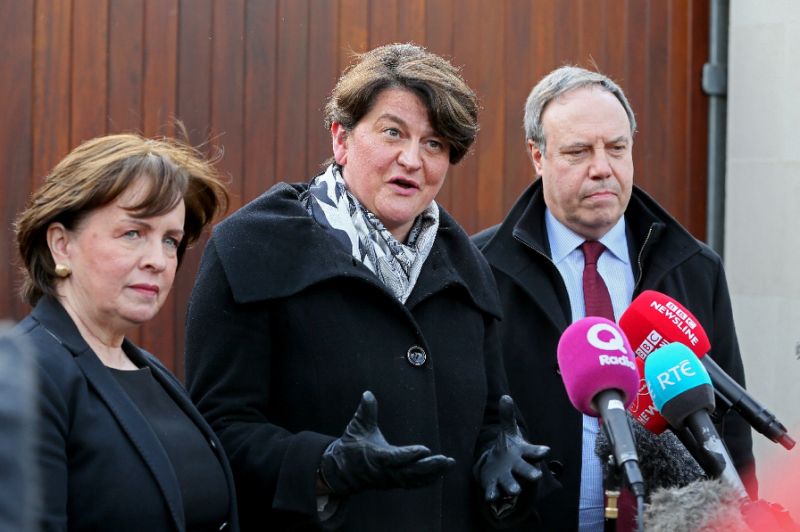
The Democratic Unionist Party, whose votes Prime Minister Theresa May is courting to save her Brexit deal, is a hardline Northern Irish group whose tough negotiating
tactics were honed in a civil war.
Rather than willingness to compromise, "no" has more often been the watchword of the DUP, known for fiery rhetoric and steely determination.
With a power-broker role in the British parliament and its position on the Irish border holding up approval of a divorce deal with Brussels, the party is at the sharp end of Brexit.
Their role is even bigger in the Brexit endgame: with less than two weeks to go until the scheduled departure date, a growing group of holdouts say they will switch sides and back May's agreement if she manages to get the DUP onside.
The group's 10 members of parliament in the lower House of Commons have propped up May's Conservative government since a June 2017 snap general election.
The Conservatives lost their majority and turned to their fellow right-wingers for support in a "confidence and supply" deal.
The agreement came at a price of £1.0 billion ($1.3 billion, 1.15 billion euros) in extra funding for Northern Ireland, a payment May's government is expected to renew in the coming months.
Though the DUP opposes May's current Brexit deal, it kept its word and fended off an opposition bid to bring down her government in January.
In any Brexit deal with the European Union, the party wants Northern Ireland to be treated exactly the same as the rest of the United Kingdom.
The DUP is concerned that the agreement could accord Northern Ireland a different economic status from mainland Britain and lock the country as a whole indefinitely into the EU's customs union.
The DUP campaigned for Brexit but is also faced with concern in Northern Ireland about the possible reimposition of physical checks on the Irish border.
It is feared that a so-called hard border could threaten the 1998 Good Friday Agreement that brought an end to decades of civil strife between British Protestants and Irish Catholics in Northern Ireland.
On the lowest UK regional turnout of 63 percent, 56 percent in Northern Ireland backed the UK staying in the EU.
The DUP are the only Northern Irish party in the British parliament: Irish republicans Sinn Fein do not take their seven seats and there is one independent unionist.
The four other major parties in the province -- who were all against Brexit -- fear the DUP is not representing the views of Northern Ireland as a whole.
- 'Christian fundamentalist' party -
Deeply socially and economically conservative, the DUP is rooted in Northern Ireland's Protestant, pro-British community.
The self-styled "Christian fundamentalist" party has softened its fiery anti-Catholicism since it was founded by Protestant evangelical minister Ian Paisley in 1971.
But the party that in 1977 launched the "Save Ulster (Northern Ireland) from Sodomy" campaign still holds hardline religious views, particularly on issues such as abortion.
It was a surprise to many in 2005 when Paisley agreed to enter a power-sharing arrangement with socialists Sinn Fein -- once the political mouthpiece of the Irish Republican Army paramilitaries.
Although the Northern Ireland Assembly appeared to operate with reasonable cordiality for several years, the power-sharing executive collapsed in January 2017, with Sinn Fein citing a breakdown in trust.
The Irish republicans have blamed the DUP's deal with May's government for the failure to get a devolved Northern Irish government up and running again.afp



































